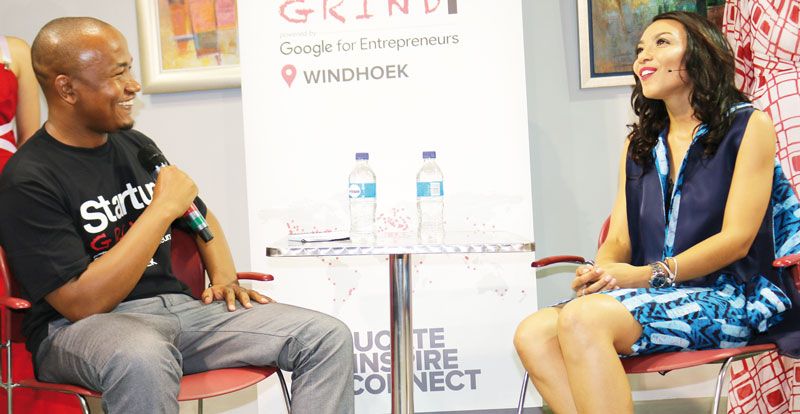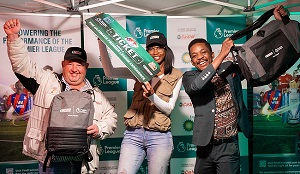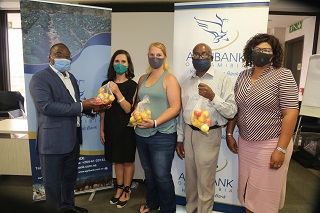
Apparel industry needs structure

Fashion aficionado and designer Nikola Conradie last week said that the apparel and tailoring cottage industry lacks structure to compete with international standards.
Speaking at the National Gallery of Namibia as the first speaker of the newly launched Google entrepreneurial Startup Grind series Windhoek Chapter, Conradie of Conradie Fashions, mentioned the importance of setting cyclical collective industry trends such as color and style. This she said is mostly the job of the Fashion Advisory Council which she urged newly emerging and established fashion designer to consult before window dressing their creations on the runway.
Conradie started her business, Conradie Fashions from a boutique studio space which she said could possibly relocated as she plans to work with people that she draws inspiration from locally. The young designer cut her teeth in the fashion capital of the world, Italy, which she says made her approach to her work all that more inspiring and demanding.
“Because they see you as coming from Africa, they to want your creative input” She said on what it is like to have to work and collaborate in making clothes in her own style while respecting industry standards and norms and clients request. Her education and travel exposure made her realize all that more that as any other industry, local fashion designer need to know the rules before they break them. “In Europe, with every new fashion season, a pallet of colours and styles and other standards are set and chosen whereby the industry innovates on and creates garments that appease the taste of the consumer and market,” she said, adding that getting into the retail space is a mammoth of a task that local retailer such as My Republik and others are taking a gamble on.
“Going retail, I only see that in South Africa, the market is larger and mostly more focused on setting the trend in terms of buying for retail and mass production tailoring,” she said. According to her, there is space for that however large, but Conradie is happy in doing things her way for now.
She draws her inspiration from her parents who have supported her career choice and the luxury to pursue it which she says is the ultimate blessing.
The Windhoek Chapter of the Google entrepreneurial Start Up Grind talk series where Nicola spoke at is a network of city-based communities of entrepreneurs that is globally powered by Google for Entrepreneurs. “We are currently in 200+ cities’ in 85+ countries around the world with a global community of +400,000 entrepreneurs.” Dr N.M.D Uamburu – Chapter Co-Director and Chief Dentist at Katutura State Hospital who was the master of ceremony for the night said.
Every month, each city hosts an event that brings together local entrepreneurs to connect and make friends, find ways to help and learn from each other’s business experiences and get inspired by those who have achieved measurable success in business, in various industries. These events are filmed and showcased on our local and global platforms, and on YouTube-powered by Google.
“Our mission is to promote local entrepreneurship activities by connecting, educating and inspiring young founders and entrepreneurs so that they can overcome the hurdles of starting a business. Emmanuel Simon, Chapter Director and Architect in Training at Jack Mutua Architects Inc said. The architectural firm also sponsored the event in partnership with ConsoAV, a sound an audio-visual company also based in Windhoek. Simon is a strong advocate for networking, especially for entrepreneurs, not for the immediate gains of building business contacts but more for interpersonal communication skills and listening to others. This he said on the night takes away from the ego and harsh reality of being an entrepreneur.
Meanwhile, while engaging the speaker of the night, Simon mediated questions from the audience, repeating them to the guest, this helps with the conversation and setting the pace and getting more insight from the fashion designer. Nikola did not hold back on what it takes to dress people, citing quality of cloth and sourcing of good fabric, which she said was not available in the immediate market as one of her greatest challenges.












































